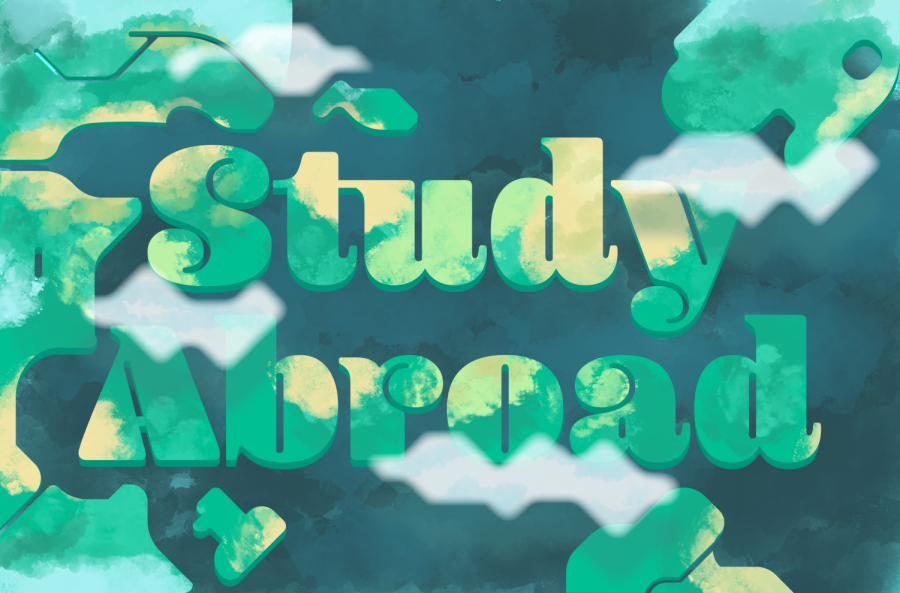Students Studying Abroad Excited to Take Flight
Since COVID-19 travel restrictions have been lifted, students seeking to study abroad will finally be able to partake this summer. To help students connect with others and prepare for their 2022–2023 trip, the Education Abroad Office (EAO) held a series of educational and informational events entitled “Preparing To Take Flight Week” from May 16 to May 20.
Kirsti Ruud, an advisor at the EAO, felt excitement throughout the entire office.
“The past few years have been very challenging for our field and full of disappointment with students not being able to realize their dream of studying abroad because of the pandemic. Now, we have nearly 250 students planning to study abroad starting this summer and into next year! We are thrilled,” Ruud wrote to The Spectator.
The week had an event for every student, and some event categories included white students, women studying abroad, students of color, students with disabilities and LGBTQ+ students.
Anna Penticuff, a second-year biology student, attended the white students studying abroad event to help get ready for her trip to Kisumu, Kenya this September.
“As a white person growing up in the U.S., I have never been part of an ethnic or racial minority, and even though I will be part of a minority group of white individuals in Kenya, I will still carry with me the privilege of being white and coming from America,” Penticuff wrote to The Spectator.
Some students choose the countries in which they wish to study based on cultural and political interests. Penticuff, for example, hopes to gain more knowledge about Kenya’s culture and healthcare system.
“The program is based on global health and I plan to pursue a career in the healthcare field, so I am also really looking forward to learning more about how global health works,” Penticuff wrote.
There are personal and professional experiences that students are able to accomplish when studying abroad which incentivize Seattle U students to pursue their academic interests in other parts of the world.
“Students can learn how to engage in experiential and comparative learning; strengthen language proficiency; cultivate cultural competencies and humility; deepened understanding of self, community and the world; increased ability to problem-solve and adaptability; and develop professional skills and network building,” Ruud said.
Jordan Faulstich, a third-year finance major, looks forward to learning more about the corporate setting in Europe. Faulstich’s trip had been paused for two years because of the pandemic, so he feels fortunate to be able to study abroad.
“All of my previous European trips have been purely historical-based, so I’m excited to learn more about the European corporate setting. Decreasing COVID-19 levels in the EU recently have allowed our professors greater flexibility in planning,” Faulstich said.
With the transition of countries opening up to visitors, the EAO kept certain factors in mind to respond to a changing landscape.
“We, our partners and faculty leaders have worked to adapt policies and practices to adequately respond to our changing world, ensuring plans for preparation and in-country experiences reflect best practices in addressing health concerns and mitigating risk,” Ruud said. “Seattle U’s risk assessment bodies and Travel Advisory Committee review program proposals and individual student plans to ensure they exceed safety thresholds.”
Students who wish to travel to countries with a level three or four travel advisory must submit a detailed petition to Seattle U that explains why it would be beneficial for them to travel to the particular country, as well as acknowledge the current health risk. Details including the familiarity of the country, qualification of leaders and participants, fluency in host language, a map with the geographic location and descriptions of logistical information and emergency protocols also need to be included in the petition.
Ruud believes education abroad has a great impact on students, particularly due to the global outlook of Seattle U’s mission.
“These experiences are valuable to students and important for the university’s realization of strategic goals. Students who have had an education abroad experience consistently report that it is the most impactful and memorable part of their undergraduate studies and that it strengthened their sense of belonging and connection to Seattle U’s mission to become leaders for a just and humane world,” Ruud said.
Studying abroad has been a challenge during the pandemic. As students get ready to embark on their educational adventure outside the U.S., they hope to learn something new and gain a greater understanding of the world.


